'Closing pubs at 10pm halves your takings'
- Published
- comments
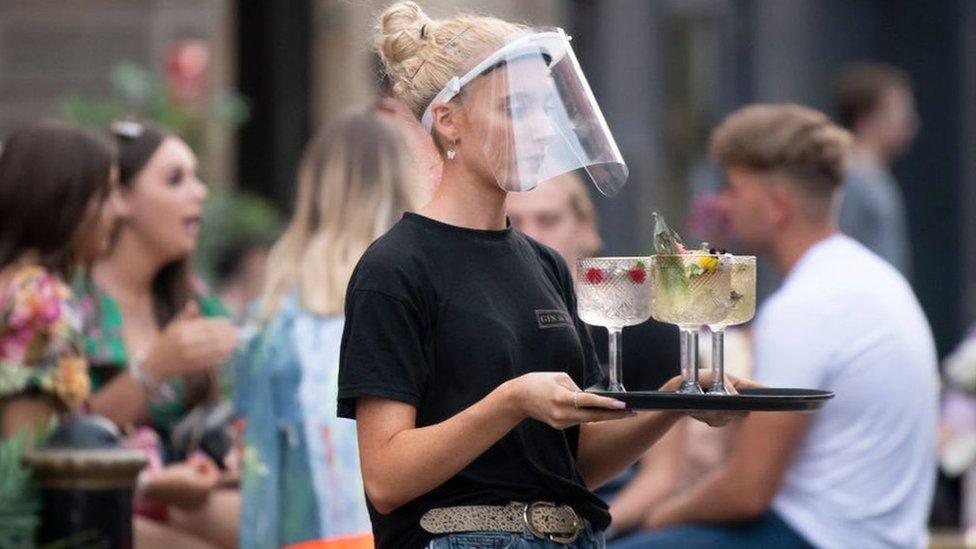
Closing pubs early may not seem like a big step but the hospitality industry is warning it will have devastating impact on the sector.
"People have this vision, it's just a few blokes standing at a bar at 10.30. What does it matter?" says Oliver Vaulkhard, who runs venues across north east England.
"10 o'clock doesn't sound dreadful, but it does halve your revenue," he said.
The new rules will come into force in England on Thursday.
All pubs, bars, restaurants and other hospitality venues in England will have to shut at 10pm. Prime Minister Boris Johnson said this will mean "closing and not just calling for last orders".
Businesses must also ensure customers are served at tables of no more than six and groups are not permitted to mingle.
Pub owners say the earlier closing time will be "absolutely devastating" for some venues and will affect takings not just at late night venues, but at restaurants too.
"You can sit people between 7 and 7.30pm and when they're gone they're gone. You can't get that 9 o'clock sitting," Mr Vaulkhard told BBC Radio 5 Live.
The Vaulkhard Group only has six of its 15 venues open currently; its music and night club settings remain closed and those that are open were trading at around 60% until last week.
Tighter restrictions already introduced in the north east to limit the spread of the virus, had reduced takings over the weekend by half again, Mr Vaulkhard said.
Free mixing
The night-time economy is considered a high-risk area for the spread of the virus, because people adhere to the rules less strictly after consuming alcohol and in venues where they are used to mixing freely.
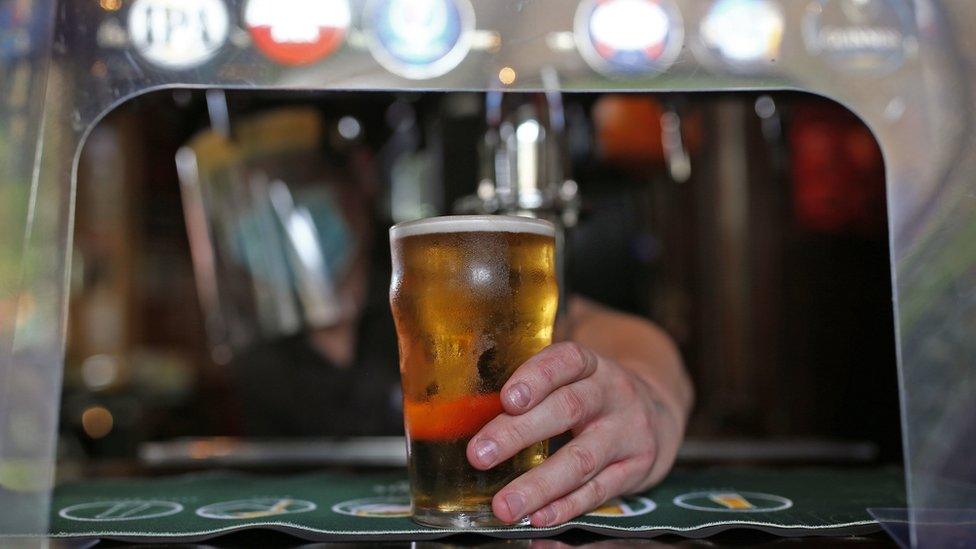
Cabinet Office Minister Michael Gove told BBC Breakfast that there was evidence the 22:00 closing time has had a "beneficial effect" in the areas where the restriction has already been tried, such as Bolton.
But the Night Time Industries Association said if pubs and bars had to close at 10pm there was likely to be "a surge of unregulated events and house parties which are the real hot beds of infection".
Scotland's First Minister, Nicola Sturgeon, is due to make an announcement on further restrictions in Scotland later, which could also include curfews for hospitality venues. Pubs must close at 11pm already in the six counties that are under tighter lockdown measures in Wales.
'Final nail'
"These restrictions are a further, potentially fatal, blow for many hospitality businesses," said Kate Nicholls chief executive of trade body UK Hospitality.
"Most disheartening is the announcement that they are potentially in place for six months. Lots of businesses will not survive this and we are going to see more and more people lose their jobs."
The curfew was "disastrous news" said Martin Wolstencroft who manages Arc Inspirations, which runs 17 bars and restaurants across Leeds, Manchester, York and Newcastle.
"This is going to be the final nail in the coffin for many," he told the BBC.
"It's just so frustrating, so negative. After 10 o'clock is really when we start making money because that's when we start getting busier."


Maximum virus suppression for minimum economic impact seemed to be one of the principles behind today's announcements. Even a two week "circuit-breaker" lockdown, which is one option that's been discussed, could have hit the size of the economy to the tune of 5-10%. For now we've avoided that, but it remains held in reserve in case the virus continues to spread exponentially.
The new information for both customers and business owners is that the public faces six months of restrictions. This will act as its own form of gravity in those sectors already hardest hit by the shift to a more socially distant Britain. That's because, for large parts of the economy, the impact of the pandemic comes not just from government-mandated restrictions, but also from people choosing to behave differently.
Banks are already fretting about how to deal with high anticipated default rates on some support loans. The government will be under pressure to extend its bridge of support, at least in the most-affected sectors, well into next year.

- Published22 September 2020
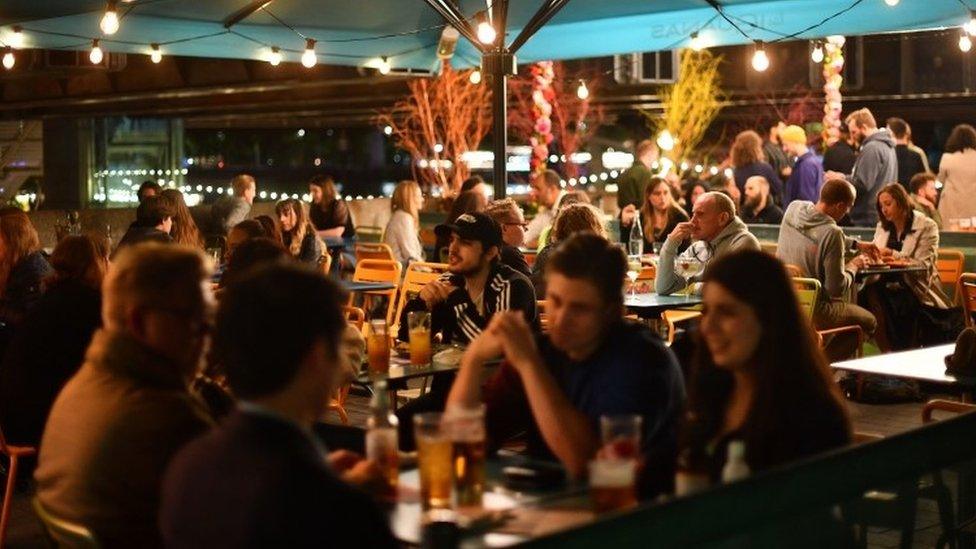
- Published18 September 2020
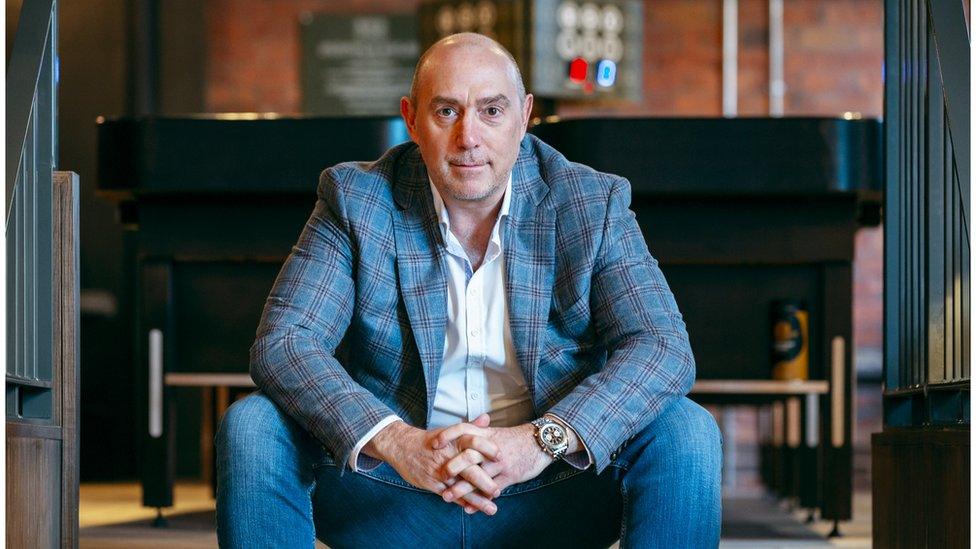
- Published14 July 2021
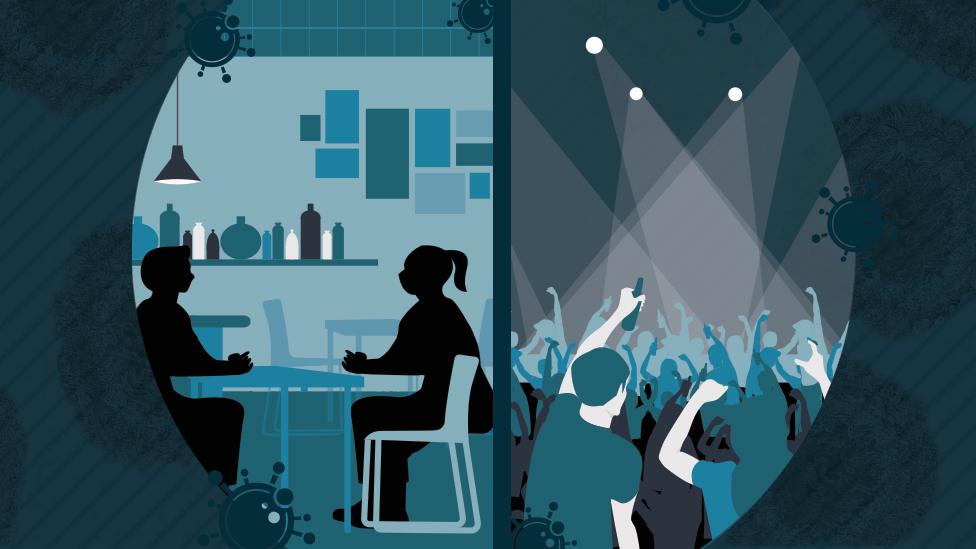
- Published13 September 2020
